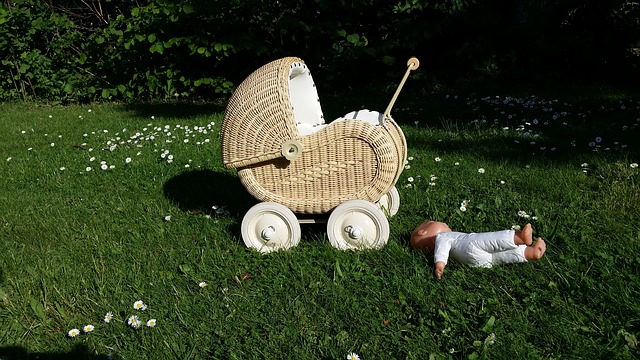Written by Rachel Yapchiongco as originally posted at the Philippine Online Chronicles
In this modern world, kidnapping has evolved from physical abduction to the digital form. It may sound absurd but it happens.
In this social media age, parents enjoy posting pictures of their children online on Facebook, Twitter and Instagram. Many of these pictures become accessible to strangers and people who have dark intentions.
Some individuals prey on children’s photos and use them without the owners’ knowledge or permission.
An article on Yahoo! Parenting tells the story of how Lindsey Paris, a blogger mom discovered that another woman had set up a page using her young son’s image as her homepage photo. Lindsey was horrified upon realizing that a total stranger has stolen her son’s pictures and posted them as her own. “She was pretending that he was her own and commenting on when was he going to start teething. Her friends were saying that they loved his hair. She was treating him as her own and that was the most petrifying thing. I didn’t know people did this,” Paris said.
She immediately got in touch with the offender who stole her child’s photos and demanded that she take them down. The teenager was apologetic and said that she didn’t mean any harm. She immediately removed the photos.
This online trend has been dubbed as digital kidnapping. Digital kidnappers like to role play using photos of other people’s children. They grab them from social media accounts and post the photos as if they are their own.
Some people seem to treat the unlawful use of digital properties lightly. They think of it as a fun game without realizing the repercussions. According to Yahoo! Parenting, there are countless Instagram and Twitter posts that are hashtagged #BabyRP (short for Baby Role Play) and #KidRP (Kid Role Play). Fast Company calls it “the creepiest new corner of Instagram.”
Washington Post reported the bizarre behavior of creating fictional relationships by using pictures of other people’s kids. Digital kidnappers enjoy playing parents online. Role playing is escalated in comments. They come up with different scenarios to encourage online conversations. For instance, they talk about a child’s first day in school, a baby’s teething experience, discipline methods, and so on.
Most accounts are harmless and innocent but some are sexual and violent. Extreme role-playing story-lines mention physically and sexually abusing children.
What’s more alarming is that Baby Role Play is becoming an online community. A lot of users choose to be anonymous. Those who feel comfortable revealing themselves turn out to be mostly female teenagers.
According to Fast Company, digital kidnappers tend to be teens and tweens who come from a broken family.
Virtual kidnapper profiles are not limited to women. Last month, Danica Patterson, a 23-year old mom accused a man of digital kidnapping. The individual allegedly stole her daughter’s images and posted them on his Facebook page. The man claimed that Patterson’s daughter is his. Given limited legal options, Patterson complained to Facebook and got in touch with the offender by sending him a message. She requested the man to remove the photos from his account. She also blocked the person to prevent him from stealing more pictures. Patterson was disappointed with Facebook’s initial response.
Facebook y claimed that it didn’t see anything wrong with the actions of the individual and.that the said man met “community standards”. Facebook later changed its position on the matter by declaring that the content violated their standards. Photos of Patterson’s daughter have now been removed from the user’s page.
Some accounts pose make believe adoption agencies with fake history for each photo. BabyRP users try to meet the qualifications of fake agencies in order to earn the privilege of adopting the child that they want. Communities are also using hashtags like #adoptionrp and #orphanrp.
Virtual kidnappers encourage other people to play along with them. Some even create entire make believe families from spouses, siblings, children, and others.
Social media platforms like Facebook and Instagram prohibit this kind of behavior because it violates their Terms of Service agreements. An Instagram spokesperson told Mail Online that they will take the pictures down once they receive complaints or reports from the parent or guardian of the child involved.
How to prevent digital kidnapping
The easiest way to protect your children from becoming victims of this online trend is by keeping personal pictures of your kids private. Familiarize yourself with the privacy settings of your social media accounts to limit people who can see your photos. This may help filter out strangers who may use your images. You also have the option of watermarking your photos to prove ownership.
Using photos that are not your own is considered stealing. It is against most major websites’ Terms and Conditions to steal images or pretend to be another individual.
If you discover an incident of virtual kidnapping, notify authorities immediately and warn as many parents as you can by sharing the information.
Contact the user who posted the images and ask the individual to take the photos down. In the US, if the offender refuses, the complainant may invoke the Digital Millennium Copyright Act. This requires submitting a DMCA claim to the website or image host asserting your copyright claim on a specific image.
Last year, an online petition called “Put an end to the baby and child role play” was launched on Change.org to raise awareness. The campaign didn’t get too far. Only 1,047 signatures were collected for the said petition.
Photo c/o Pixabay. Public domain.
—————————–
